Meet 7-week Portuguese Immersion Student: Jack Savage
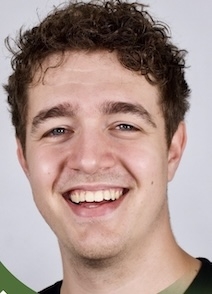
I was motivated to attend Middlebury’s School of Portuguese because of my interest in the Portuguese language and Brazilian culture. Over the past several years, I have been fortunate enough to befriend many young and inspiring Brazilian professionals who gave me a baseline understanding of the language and culture. However, I had a fervent desire to gain greater mastery of the language and a deeper understanding of the Brazilian way of life.
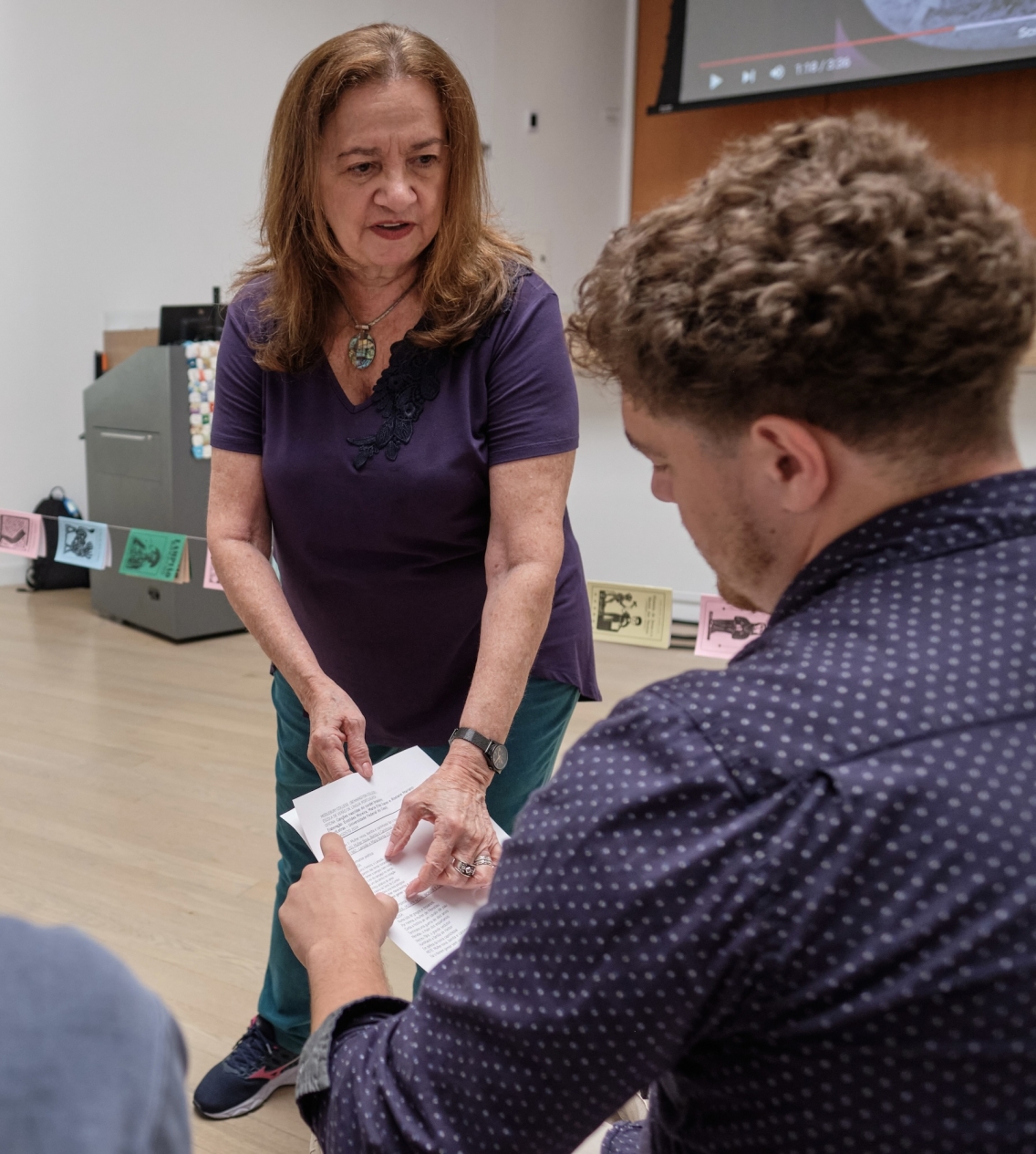
Just as importantly, I was searching for a program that would allow me to dive deep into a passion of mine, day in and day out, bolstered by a supportive community.
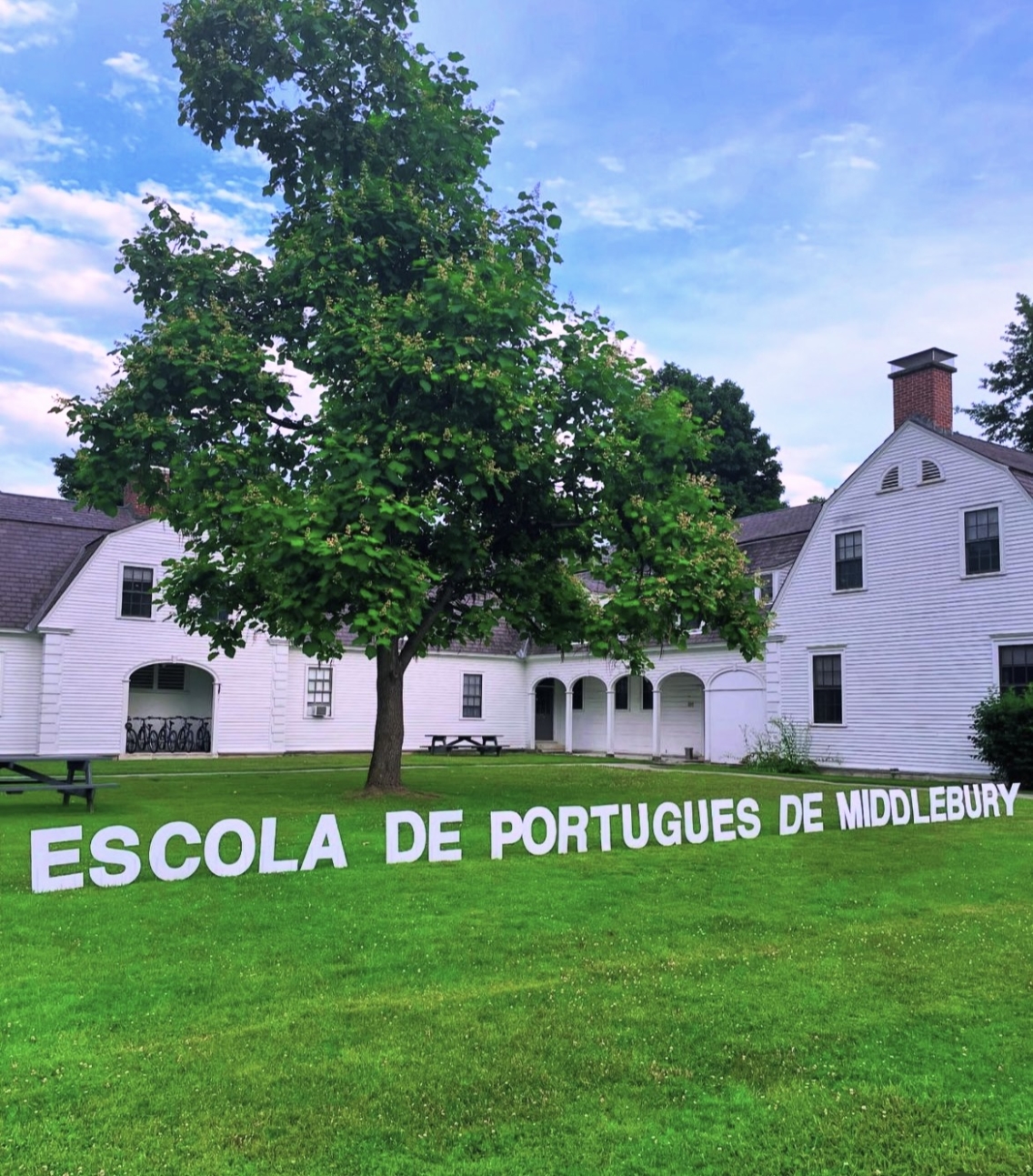
The Middlebury Language Schools are designed to challenge you and push you out of your comfort zone. However, the community ensures that you never face these challenges alone.
The Language Pledge® guarantees that the person next to you is also struggling but encourages you to communicate, and through that communication, you find connection. Plus, you will greatly improve your language skills!
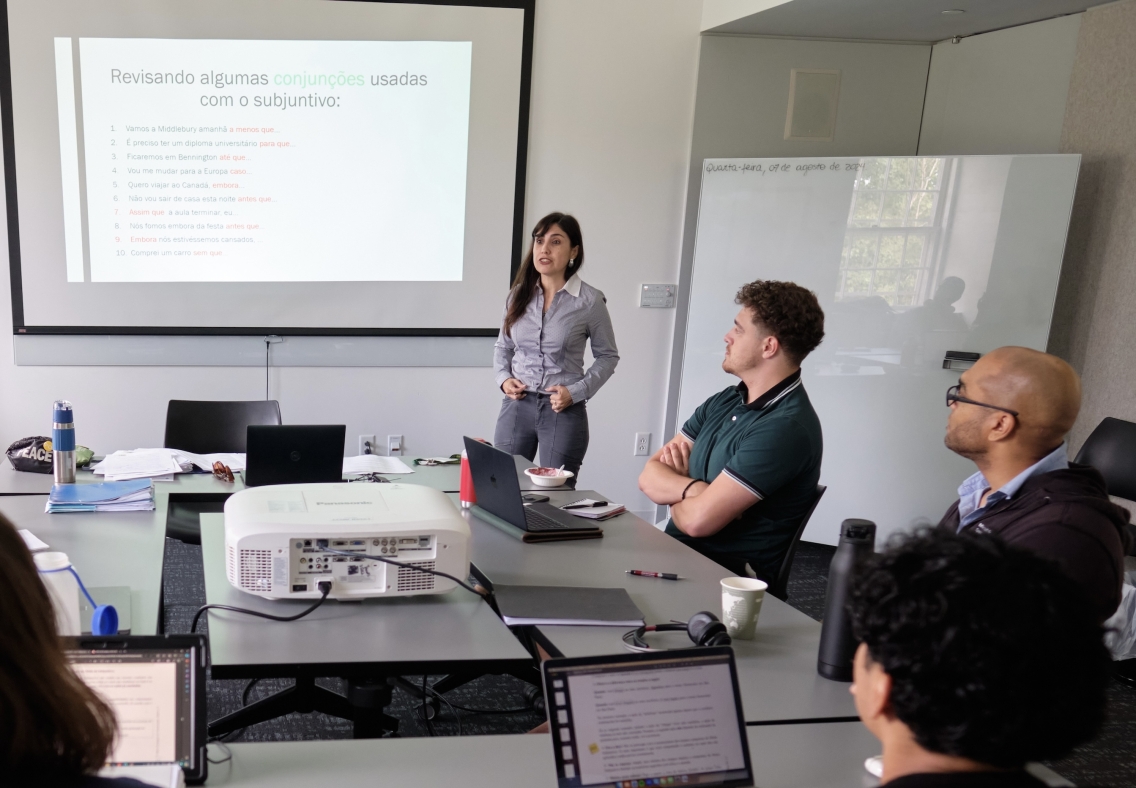
This phenomenon is what I like to call “Positive Agitation,” a key ingredient for learning anything you set out to master. A memorable experience that exemplifies this concept happened during the first week of the program. My professor, Vinicius Guarilha Alves, had our class dress up in colorful Brazilian Carnival costumes, design a Carnival flag, and march into the Bennington College dining hall, singing well-known Carnival songs. There were a few parts to this assignment. First, we had to learn three songs in Portuguese, which we performed in front of our classmates. We even worked with the program’s music teacher to perfect the tone and timing of the songs. While working on the design of our flag for our “Joia Beleza Bloque,” we learned about Carnival traditions in various parts of Brazil and the common celebratory practices that accompany the festivities.
On the day of the performance, I was shaking with anxiety along with my classmates. We marched into the dining hall, all eyes on us in our shiny outfits and silly hats, belting out traditional Carnival marching music. At some point during the performance, we all became comfortable with looking silly and embraced the moment. For me, this was a moment of growth. I was singing in a foreign language without notes, cementing an authentic Brazilian tradition of Carnival in my memory, all while dressed as a wizard in a sombrero.
In short, I was incredibly uncomfortable. But that discomfort eventually turned into comfort—with myself and, by extension, the language.
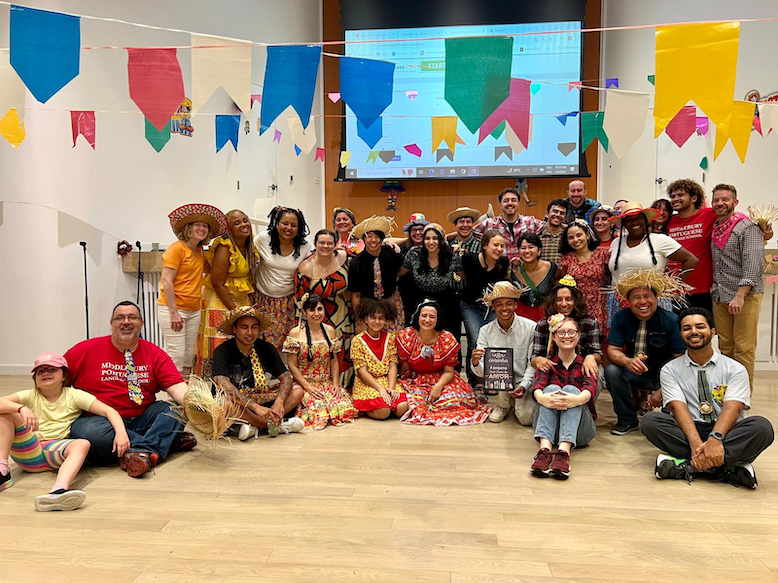
This was just one of many examples throughout the summer where I was challenged in this way. Fortunately, I experienced this kind of challenge daily, which greatly improved my language skills. One particularly effective learning tool hardwired into the program through the Language Pledge® was “recall.” This is the stage of learning where you are forced to take information you have learned and actively use it. Many times, I sat down for lunch struggling to remember the word for “cantaloupe” in Portuguese. Then one day, it was on the tip of my tongue… I sat in frustration, with my teacher waiting in anticipation, and then—bam! I was able to recall the word. That was learning. And this exact process happened with many more words than just “cantaloupe”—like melão.
What I appreciated most about the people in my program was their diversity. We had younger students, some just starting their first year of college; impressively smart master’s and doctoral students honing their language skills for professional studies; older students who needed Portuguese for their jobs; and straight-up language addicts, just in it for the love of learning.
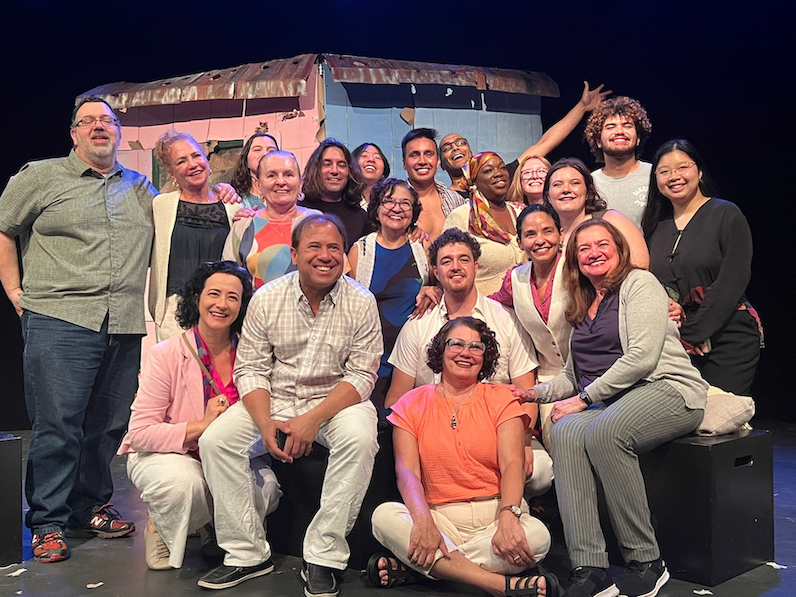
Each student came from diverse backgrounds, races, religions, and many spoke other languages besides English.
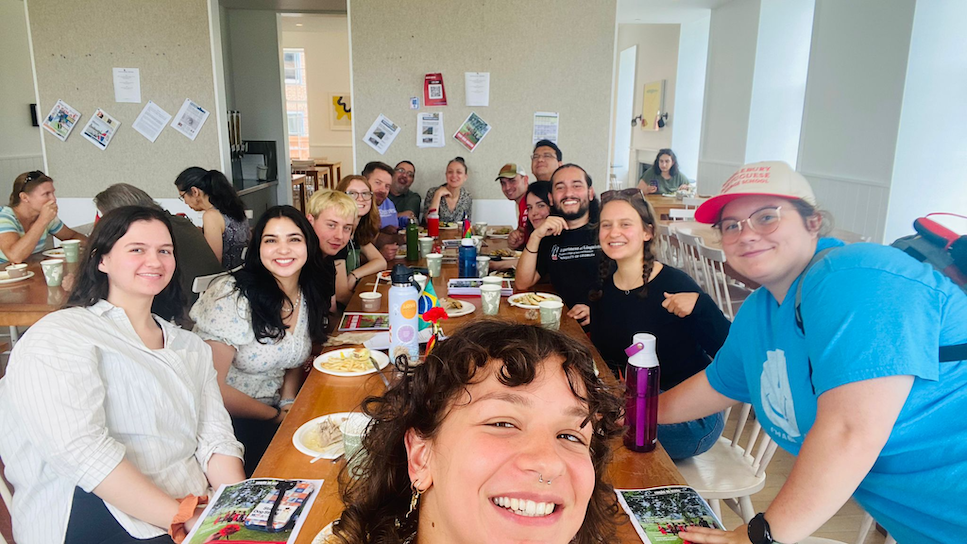
Hidden talents emerged, like musical abilities (shoutout to Lu and Nathan), guitar playing (Calvizinho), artistic skills (Armanis & Soudanie), and scary-good acting (Chelsea and Robert). I can go on and on until my office 365 account runs out of storage, but the one area where we were not diverse was in positivity—there was no shortage of it.
As for my future post-Portuguese Language Immersion program, I am currently exploring a career in TESOL (Teaching English to Speakers of Other Languages) and TFL (Teaching Foreign Languages). This program has illuminated my passion for language acquisition through experiential learning, using it as a medium to build meaningful connections with others.
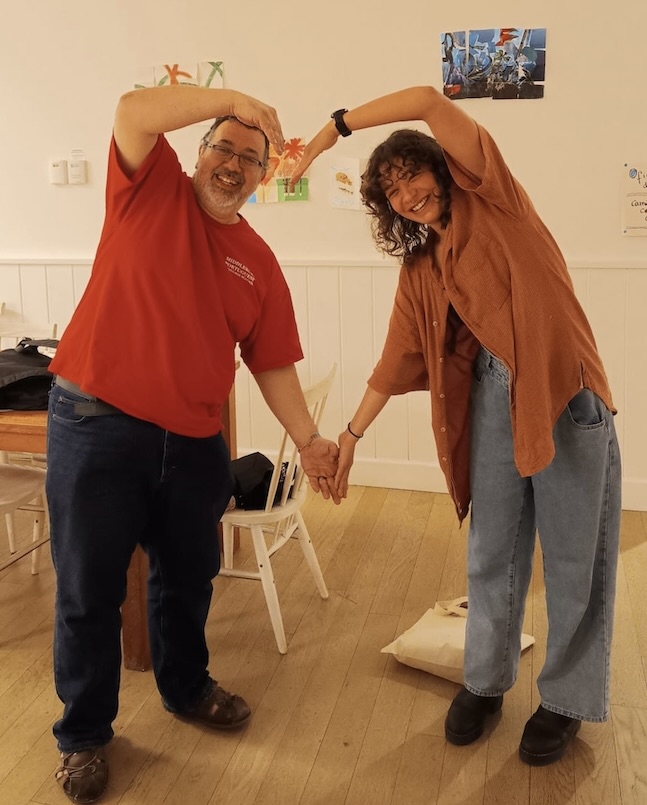
For anyone considering one of the language immersion programs at Middlebury College, you simply need to ask yourself two questions: “Do I really want to learn this language?” and “Do I want to forge amazing friendships with incredible people?” If the answer to both is ‘yes,’ then it’s definitely something worth pursuing.
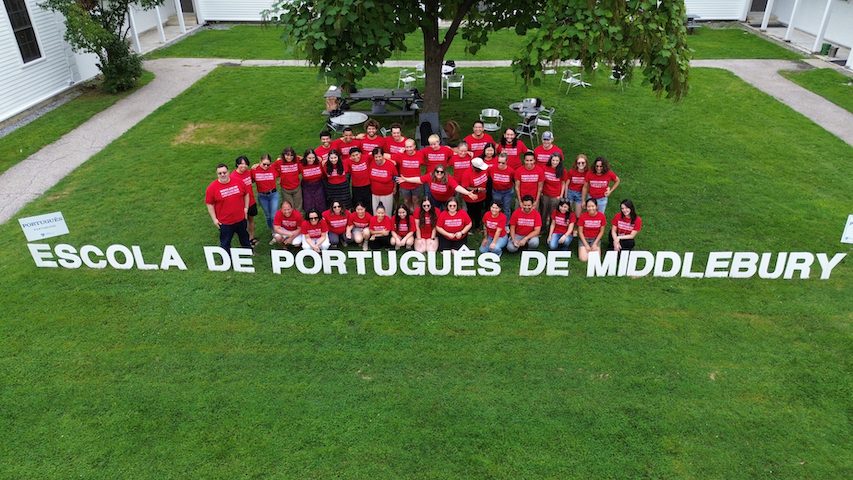
Gather your materials now to apply to our School of Portuguese when applications open on November 1, 2024.
